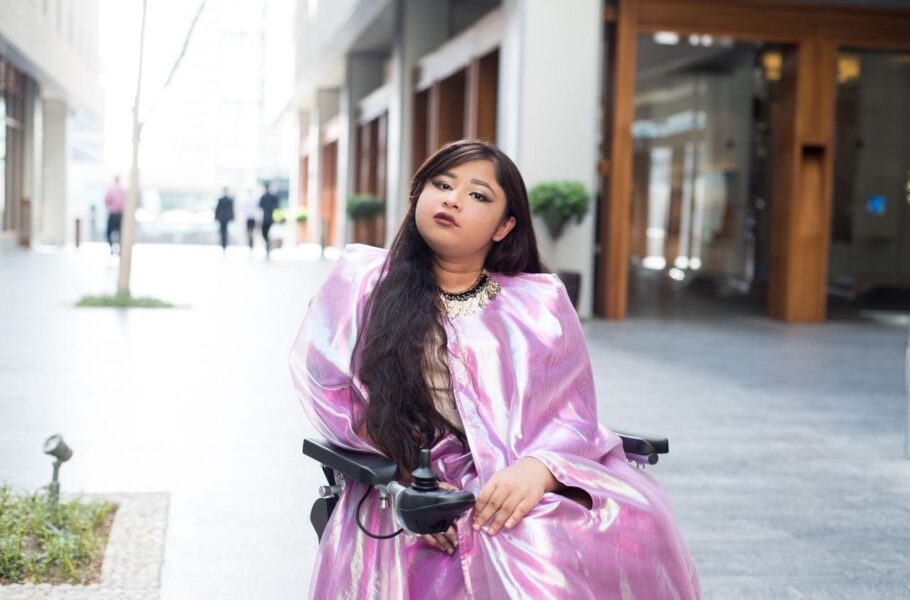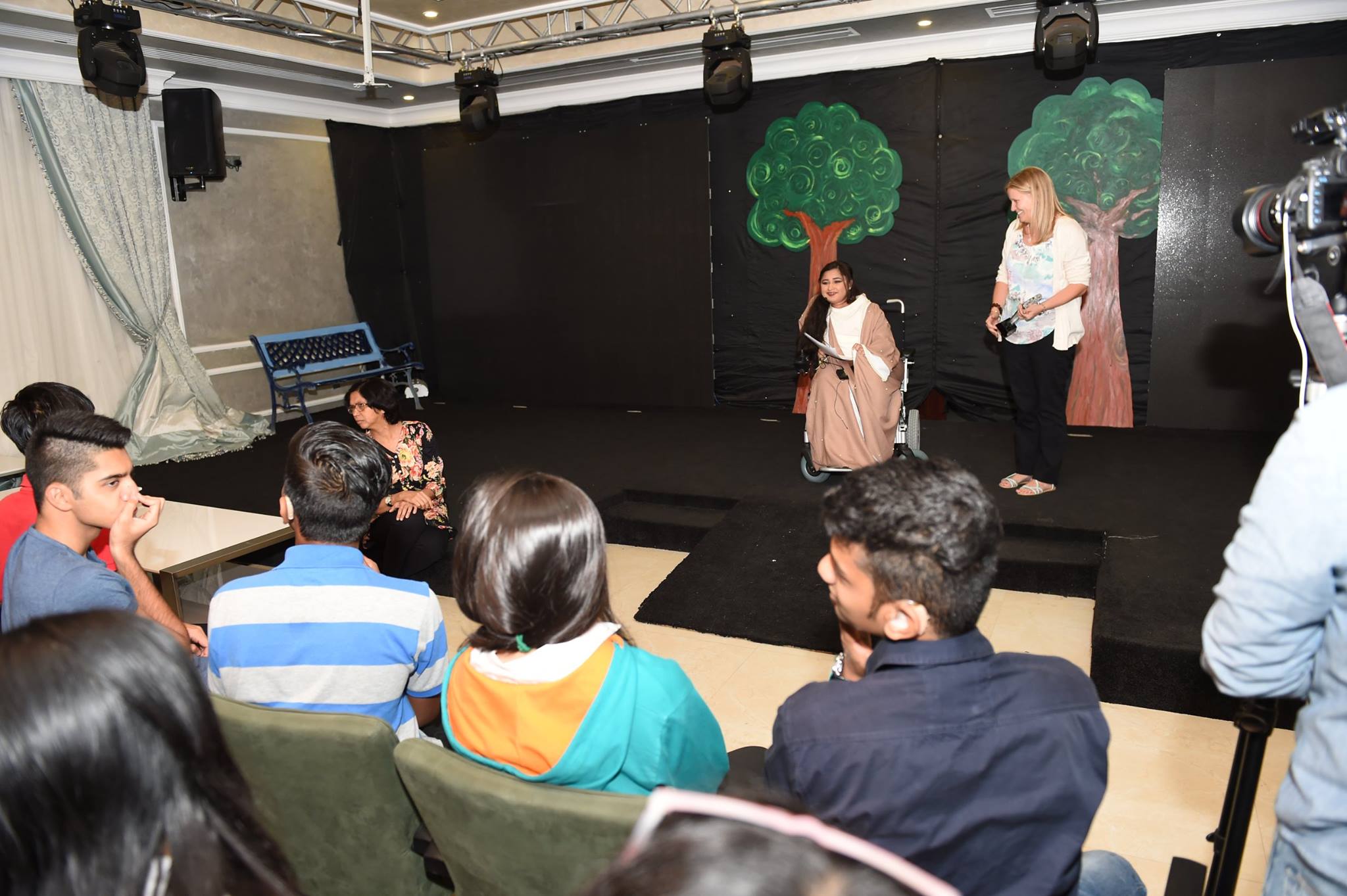
Written by: Umanga Perera
Meet Nawaal Akram, your typical 17-year-old model, comedian, Paralympic athlete and social media influencer, who just happens to be on a wheelchair.
A wheelchair to most people is basically a chair on wheels, but Akram has shown us that is so much more than just that.
Empowerment
She has been portrayed as weak and unable by society when the fact is that the wheelchair empowers her. It's one of the driving factors that made her who she is today: a multi-talented individual who isn’t defined by a disease, but rather how she managed to become the person she is in spite of it.
Because of the wheelchair Akram learnt to cope a lot with the bullying that goes on behind her back (and even sometimes to her face) by laughing about it herself. Most people are shocked when they hear her talk about it.
“Most people, when they see me, don't expect me to joke about myself so much. I love making them feel uncomfortable” Akram laughs.
Combatting Media Misrepresentation
Being in a wheelchair also gives her the opportunity to represent physically challenged people in the media.
Akram has taken up careers in almost every field in the entertainment industry: comedy, sport, fashion and soon YouTube with her new channel “Nawaal’s Adventures.”
“I wanted to represent people with physical disabilities in Qatar and showcase my life because I do a lot of things that people don’t consider normal for me to be doing,” Akram said. “Like photoshoots, seminars, stand-ups, and showcase Qatar’s more accessible places, events and activities. Believe it or not I actually went kayaking at the Pearl,” she added.
The channel would show Akram trying out new activities around Qatar, as well as showcase wheelchair accessible places like beauty salons, restaurants or any other entertainment facilities for the physically challenged people in the region.
Akram’s channel will also promote wheelchair accessibility in Qatar. People with disabilities from all around world who live in Qatar, or are planning to move to Qatar, deserve to have places to visit and live their lives to the fullest.
“I hope to build a community that promotes and suggests places and activities that have [wheelchair] accessibility so people who are physically challenged can have fun and try new things,” Akram said.

Accessibility for the physically challenged is an issue that doesn't come across our minds often. The main reason for this is because it is subconsciously ingrained in our minds that anyone who is physically challenged is also socially challenged.
“The media always portrays the wheelchair as an obstacle rather than an aid to help you move around,” Akram said. “In the media it's always shown that [the physically challenged] are in need of help and that they can't do anything without someone else and they don't have any willpower to do anything when in reality you meet amazing people who also have a physical disability,” she added. Media misappropriation of the wheelchair, pictured Kylie Jenner. Image source: Interview Magazine
Media misappropriation of the wheelchair, pictured Kylie Jenner. Image source: Interview Magazine
According to Akram, we can only break this stereotype with representation of physically challenged people in the media, by putting their work before their disability.
Bullying and Unethical Education Systems
Akram was diagnosed with Muscular Dystrophy Duchenne at the age of six, but she only started using the wheelchair at 12. When she wasn't on her chair she was relentlessly bullied for the way she walked and generally moved about. That's how muscular dystrophy works; it causes the gradual loss of sensation in your body.
“I reported this to the teachers but they brushed it off saying that the kids didn’t know any better,” Akram said.
Later that year Akram was taken out of her school (British curriculum here in Qatar) without any prior warning.
“I was kicked out of school when I was ten years old without warning,” Akram said. The school didn’t want to be responsible for a physically challenged student, even though they had the adequate facilities to teach her.
“My parents threatened to sue but since my siblings were studying in the same school, their education would have been compromised too,” Akram said.
So after being taken away from her education Akram tried applying to several other schools in Qatar but none of them would admit her because of her condition, or because she was the wrong nationality. Akram also tried applying to special needs schools but those were for mentally challenged children, not physically challenged.
“The thing is that there are means to teach students with disabilities in the universities here, but what is the use of that when we are denied our primary and high school education,” Akram said.
Akram tried being homeschooled but that didn’t work out for her, since only part time tutors were available and she was used to the traditional schooling system.
New Beginnings
Being denied her basic right to education, Akram went out and made her own opportunities. She started doing stand-up comedy (or sit-down as she likes to call it), photoshoots, Paralympic training in boccia (a game similar to bocce, played by competitors who have a physical disability that requires the use of a wheelchair), and many more things.
Akram has amassed a sizable audience on her social media and her followers are increasing everyday.
“Social media is a really powerful tool and can affect people’s mindset on any subject,” said Akam. “I want to represent my community. We are all different but in the end that’s what makes us interesting.”
Akram founded Muscular Dystrophy Qatar this year to help raise awareness about muscular dystrophy and its subtypes. Hopefully these efforts help change the media's narrative towards people who face disabilities and they finally get treated as any other person in society.
"We're perfectly imperfect," Akram said.
If you want to keep up with Nawaal and her adventures feel free to follow her on:
Instagram: @nawaalakram
Twitter: @nawaalakram
Snapchat: @nawaal.akram
Or drop her an email at [email protected]
What did you think of her story? Comment below!
Follow us on our social media channels:
![]() @ILQlive
@ILQlive
![]() @ILQlive
@ILQlive
![]() @ILoveQtr
@ILoveQtr
![]() ILoveQatar
ILoveQatar

You have successfully registered your account!
Please confirm your e-mail address by clicking on the URL sent to you.The e-mail usually arrives in 5-10 minutes.
How ajeeb was that!? Thanks for contributing to our community! Your post will appear after we take a quick look!